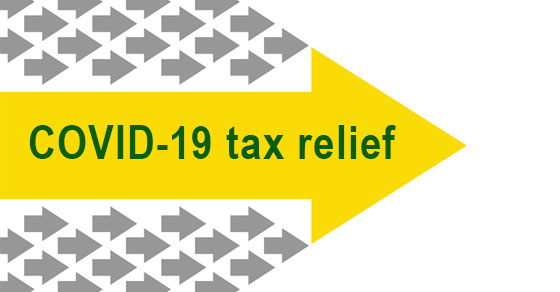
Home is where the tax breaks might be
If you own a home, the interest you pay on your home mortgage may provide a tax break. However, many people believe that any interest paid on their home mortgage loans and home equity loans is deductible. Unfortunately, that’s not true.
First, keep in mind that you must itemize deductions in order to take advantage of the mortgage interest deduction.
Deduction and limits for “acquisition debt”
A personal interest deduction generally isn’t allowed, but one kind of interest that is deductible is interest on mortgage “acquisition debt.” This means debt that’s: 1) secured by your principal home and/or a second home, and 2) incurred in acquiring, constructing or substantially improving the home. You can deduct interest on acquisition debt on up to two qualified residences: your primary home and one vacation home or similar property.
The deduction for acquisition debt comes with a stipulation. From 2018 through 2025, you can’t deduct the interest for acquisition debt greater than $750,000 ($375,000 for married filing separately taxpayers). So if you buy a $2 million house with a $1.5 million mortgage, only the interest you pay on the first $750,000 in debt is deductible. The rest is nondeductible personal interest.
Higher limit before 2018 and after 2025
Beginning in 2026, you’ll be able to deduct the interest for acquisition debt up to $1 million ($500,000 for married filing separately). This was the limit that applied before 2018.
The higher $1 million limit applies to acquisition debt incurred before Dec. 15, 2017, and to debt arising from the refinancing of pre-Dec. 15, 2017 acquisition debt, to the extent the debt resulting from the refinancing doesn’t exceed the original debt amount. Thus, taxpayers can refinance up to $1 million of pre-Dec. 15, 2017 acquisition debt, and that refinanced debt amount won’t be subject to the $750,000 limitation.
The limit on home mortgage debt for which interest is deductible includes both your primary residence and your second home, combined. Some taxpayers believe they can deduct the interest on $750,000 for each mortgage. But if you have a $700,000 mortgage on your primary home and a $500,000 mortgage on your vacation place, the interest on $450,000 of the total debt will be nondeductible personal interest.
“Home equity loan” interest
“Home equity debt,” as specially defined for purposes of the mortgage interest deduction, means debt that: is secured by the taxpayer’s home, and isn’t “acquisition indebtedness” (meaning it wasn’t incurred to acquire, construct or substantially improve the home). From 2018 through 2025, there’s no deduction for home equity debt interest. Note that interest may be deductible on a “home equity loan,” or a “home equity line of credit,” if that loan fits the tax law’s definition of “acquisition debt” because the proceeds are used to substantially improve or construct the home.
Home equity interest after 2025
Beginning with 2026, home equity debt up to certain limits will be deductible (as it was before 2018). The interest on a home equity loan will generally be deductible regardless of how you use the loan proceeds.
Thus, taxpayers considering taking out a home equity loan— one that’s not incurred to acquire, construct or substantially improve the home — should be aware that interest on the loan won’t be deductible. Further, taxpayers with outstanding home equity debt (again, meaning debt that’s not incurred to acquire, construct or substantially improve the home) will currently lose the interest deduction for interest on that debt.
Contact us with questions or if you would like more information about the mortgage interest deduction





